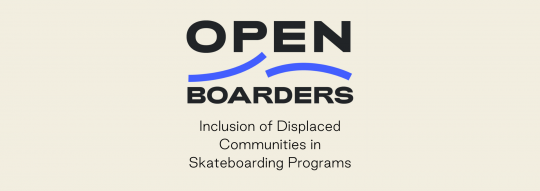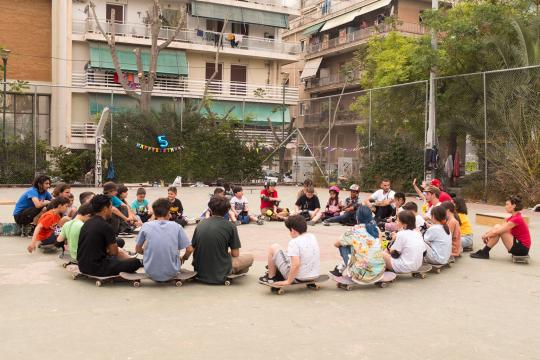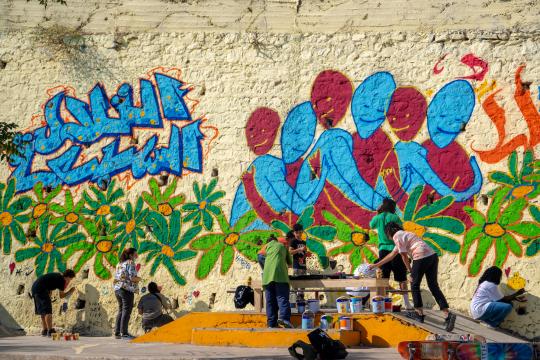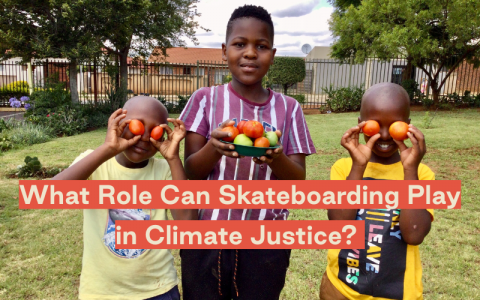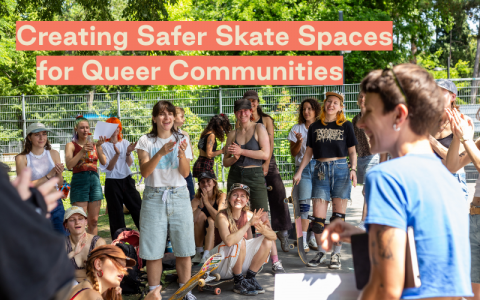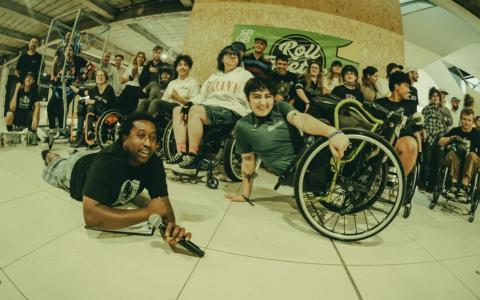Over the past 18 months, the Open Boarders Network has been working quietly behind the scenes to address the challenges and opportunities of including displaced youth in skateboarding programs worldwide. While numerous social skateboarding initiatives aim to engage displaced youth, a significant lack of resources and extra barriers mean that they are often dissuaded from taking part in programs. These obstacles, which concern the safety and wellbeing of young refugees, migrants, internally displaced persons (IDPs), and asylum seekers, are what the Open Boarders Network is now working to address.
Who is the Open Boarders Network?
The Open Boarders Network (OBN) is currently made up of 14 social skateboarding organizations working in 13 different countries: Skateistan (Global); Just.Childhood (Lebanon); 7Hills (Jordan); Free Movement Skateboarding (Greece); Art+ (Iraq); Rolling Resettlement (US); JRSkates (Malaysia); Skatesencia (Chile, Germany); Rookie Slash (Switzerland); Drop In (Germany); Skate Nation (Sweden); Zona Skate (Brazil); and GSX (Tunisia); Tyttörullalautailijat ry (Finland). These organizations have come together with a shared vision — to support the growth of skateboarding programs for displaced youth globally, and to ensure best practices for including these communities in a safe and supportive environment. The OBN is coordinated by Skateistan’s Goodpush Alliance.
First and foremost, the OBN creates a space for these organizations to come together, connect, and share experiences of the different challenges they have encountered along the way when it comes to including displaced communities in skateboarding programs. Similar to many marginalized groups, young displaced individuals face numerous barriers to participation.
These obstacles begin with accessing the program location—issues like:
- transportation
- financial constraints
- safety concerns during travel
- and family responsibilities
Once at the program, additional challenges emerge such as:
- bullying
- lack of representation
- feeling like an outsider
- fear of injury
- discomfort with public skateboarding
- and language barriers
While some of these structural and sociopolitical barriers are hard to overcome in the short term and within our spheres of influence, identifying all potential barriers to participation can go a long way towards ensuring that displaced communities not only join skateboarding programs but, more importantly, feel welcomed and safe once there. One key aspect that the Open Boarders Network is dedicated to addressing is the lack of practical resources available for skateboard coaches to use in their sessions, as well as dedicated training for social skate teams. This includes raising awareness of the effects of trauma and long-term stress, and increasing empathy towards individuals who exhibit challenging behavior as a result.
Crucially, what the OBN wishes to highlight in parallel is the incredible potential of intentional skateboarding programs to improve the wellbeing and quality of life for young displaced individuals, while at the same time emphasizing the limits of our roles as skateboard coaches. Understanding that most coaches are not trained mental health professionals, our primary focus is on educating ourselves to effectively support the young people we work with. This involves creating a safer, welcoming, and empathetic environment and guiding individuals to professional services when needed.
The Next Steps
In June, the Open Boarders Network hosted its first webinar for the social skateboarding community. During this webinar, Ruby Mateja (Skateistan) and Mahmoud Al Chanati (Just.Childhood) discussed who the term 'displaced communities' includes, the positive impact of skateboarding on youth — especially those from displaced backgrounds — and how skateboarding can contribute to emotional regulation and improved wellbeing. The attendees shared insights into common challenges faced when setting up skateboarding programs for displaced youth and strategies for promoting inclusion and preventing bullying. This webinar aimed to introduce OBN and initiate engagement with the wider community, preparing for future webinars focused on topics such as coaching methods for handling challenging behaviors in skate sessions, and creative ways to foster togetherness and belonging for displaced communities.
Alongside the webinars, the Open Boarders Network is currently working on a few different resources which are intended to be used in sessions as practical guides and methods for working with displaced youth. These include mood cards to check-in with each individual at the beginning and end of sessions (to monitor emotional states and work in a person-centered way), and the much-awaited Skate Games Booklet Volume 2 – this time with a focus on skate games which foster togetherness and belonging in programs.
If you want to know more about the Open Boarders Network and/or find out how your organization can join, contact goodpush@skateistan.org.
